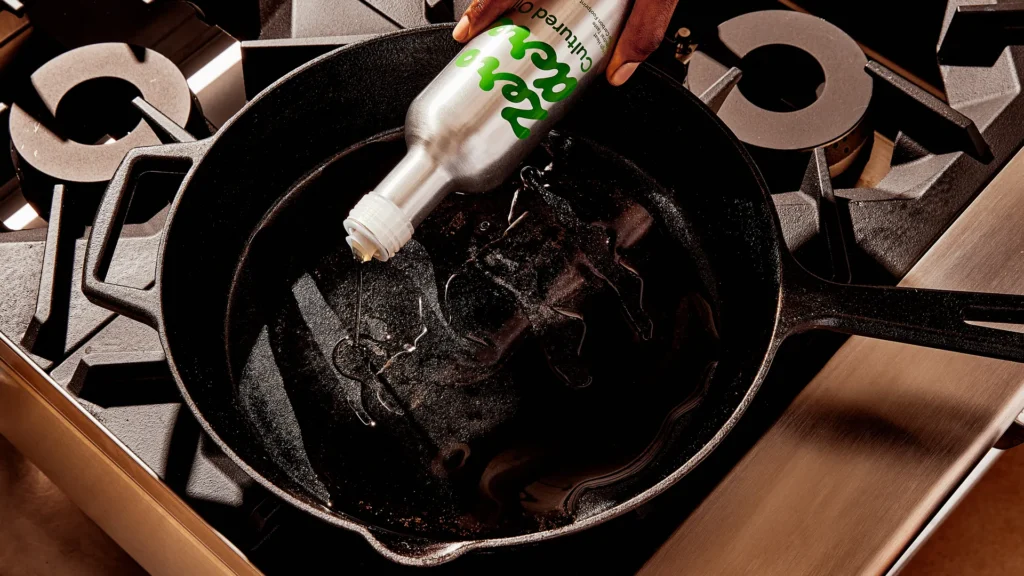
In the quest for sustainable alternatives in the food industry, Zero Acre Oil stands out as a promising innovation. This cooking oil, derived from algae, offers an eco-friendly substitute to traditional vegetable oils, addressing critical environmental concerns tied to agriculture and oil production.
Traditional cooking oils like palm, soybean, and canola have long been staples in kitchens worldwide. However, their production often comes at a significant ecological cost, including deforestation, habitat destruction, and excessive water usage. Palm oil, in particular, has been linked to large-scale deforestation in Southeast Asia, threatening biodiversity and accelerating climate change. Against this backdrop, Zero Acre Oil emerges as a thoughtful response—leveraging the natural benefits of algae to create a sustainable, efficient, and health-conscious cooking oil.
Why Algae?
Algae’s appeal as a resource stems from its rapid growth rate and minimal environmental demands. Unlike traditional crops, algae can be cultivated in controlled environments without the need for arable land, freshwater, or harmful pesticides. This characteristic significantly reduces the strain on terrestrial ecosystems. Additionally, algae absorbs carbon dioxide as it grows, contributing to carbon sequestration, which further mitigates greenhouse gas emissions.
Zero Acre Oil taps into these advantages by extracting oil from specially cultivated algae strains. The process yields an oil rich in healthy fats and antioxidants, making it not only environmentally responsible but also nutritious and versatile for cooking applications.
Taste and Culinary Performance
One concern often raised about alternative oils is their taste and cooking properties. Zero Acre Oil addresses this by delivering a neutral flavor profile, allowing it to blend seamlessly into a variety of dishes without overpowering other ingredients. Its high smoke point makes it suitable for frying, sautéing, and baking, providing flexibility comparable to conventional oils.
Chefs and home cooks alike appreciate this balance between sustainability and culinary performance. Zero Acre Oil’s mild flavor and stability ensure it can be used across different cuisines and recipes, from simple stir-fries to complex sauces.
Sustainability at Its Core
The production of Zero Acre Oil exemplifies a circular and low-impact approach. By growing algae in bioreactors or open ponds using non-arable spaces, it avoids competing with food crops for land resources. The water used in the process is recycled, and no harmful chemicals are involved, minimizing pollution.
Moreover, the algae cultivation process requires a fraction of the water compared to traditional oil crops, addressing water scarcity concerns in agriculture. The rapid growth cycle means oil can be produced year-round, independent of seasonal changes, ensuring a steady and scalable supply.
The Bigger Picture
Zero Acre Oil is part of a broader movement to rethink how food is produced, focusing on solutions that protect the planet without compromising quality or accessibility. As consumers become increasingly aware of the environmental impact of their choices, innovations like algae-based oils offer a tangible way to reduce their carbon footprint.
This product also encourages a shift in the cooking community toward embracing ingredients that align with sustainability goals. Culinary institutions and food brands are beginning to recognize the value of integrating such alternatives, promoting a more responsible food culture.
Challenges and Future Outlook
While the benefits of Zero Acre Oil are clear, it faces hurdles typical of emerging food technologies. Cost remains a factor, as producing algae oil at scale is currently more expensive than mass-produced vegetable oils. However, advancements in cultivation techniques and economies of scale are expected to bring prices down over time.
Consumer acceptance is another consideration. Introducing a new oil requires education and marketing to build trust and familiarity. Fortunately, the neutral taste and cooking versatility of Zero Acre Oil make it easier to adopt in daily cooking routines.
Looking ahead, the company behind Zero Acre Oil is exploring partnerships to expand distribution and develop additional products, such as salad dressings and spreads, broadening the reach of algae-based ingredients.
Conclusion
Zero Acre Oil represents a compelling step forward in sustainable cooking. By harnessing the power of algae, it offers an environmentally friendly, nutritionally sound, and versatile alternative to conventional oils. As awareness grows and production scales, algae-based oils could become a standard pantry staple, helping reduce the ecological footprint of everyday meals while maintaining culinary quality.
